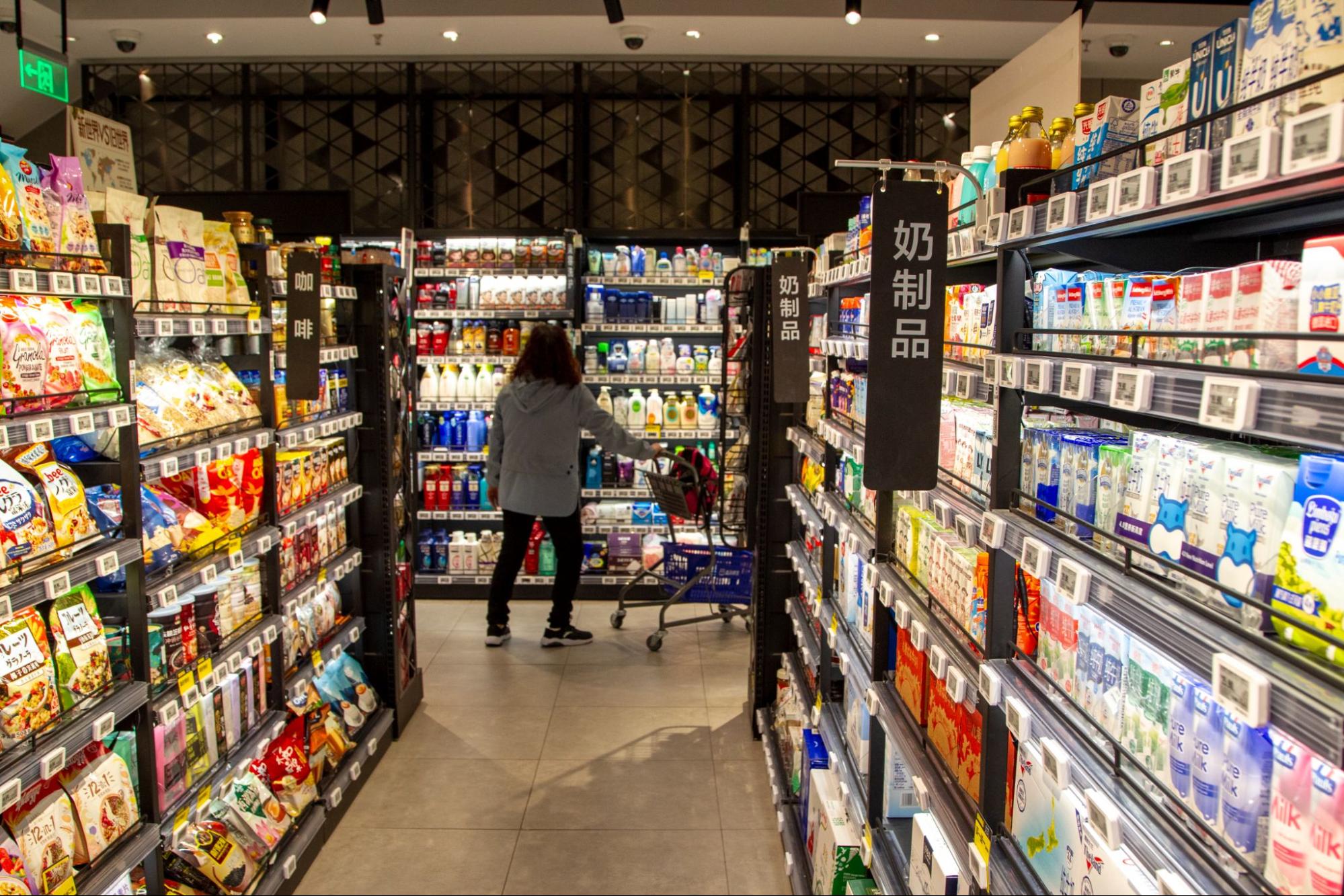Durian cake price war in China’s supermarkets
It’s a buyer’s market…if you are buying stinky durian crepe cakes.

China’s unemployment crisis deepens and wage cuts spread. These are tough economic times for many shoppers in the country, who are forced to reduce discretionary spending. But for at least one group of consumers, now is the best time to splurge on their favorite dessert.
An almost comical price war that has broken out between Hema Xiansheng and Sam’s Club, two major players in China’s supermarket sector owned by Alibaba and Walmart respectively. The price of durian crepe cakes — a dessert made from layers of French crepes with light pastry cream and meat of the famously stinky durian fruit — has dropped significantly in the past few weeks. The aggressive discounting comes at a time when competition is heating up between China’s biggest grocery chains, who are desperate to maintain customer loyalty when shoppers are tightening their purse strings.
The tit-for-tat took off in early August when the cake — which was previously sold at Sam’s Club for 128 yuan ($18) — hit the shelves at Hema stores, where the product was priced at 99 yuan. Not to be outdone, Sam’s Club adjusted the cake’s price to 98.9 yuan a few days later. Hema then lowered its offer to 89 yuan; by the next morning, Sam’s Club was down to 88 yuan.
The price competition escalated on August 18 when Hema launched a price-reduction program called “moving mountain price” (移山价 yíshān jià). Although the Alibaba-owned supermarket chain insisted that the promotion was unrelated to its foreign competitor, it was still widely interpreted as a diss at Sam’s Club, whose Chinese name is (山姆 shān mǔ).
In response to the provocation, Sam’s Club further slashed the price of durian crepes to 86 yuan. The move was answered with a similar discount by Hema, which now sells the cake for 85 yuan.
In the meantime, Meituan Maicai, an online grocery service operated by Chinese food delivery giant Meituan, has joined the fray. On August 15, the online supermarket app introduced a special discount campaign called “tug-of-war price” (拔河价 báhé jià). The name is an obvious reference to Hémǎ 河马, with its slogan “Faster, better, and cheaper” drawing clear inspiration from Hema’s tagline “Greater, fresher, and more affordable.”
The durian cake isn’t the only item caught in this crossfire. So far, Hema’s “moving mountain price” strategy has reduced the cost of nearly 100 items in various categories, whereas Meituan’s promotion mainly involves baked goods and snacks.
There has been no telling whether a truce has been reached in this battle. But according to Chinese shoppers, the price war has been an obvious score and they don’t want it to end. “Keep going at it! I’ll be on the sideline cheering for everyone involved in the war,” a Weibo user commented, while another person advised, “I suggest people shop at both places and don’t let anyone claim victory. If one of them achieves monopoly, it won’t benefit us. Competition prevents businesses from abusing customers in the name of profits.”
A race to attract members
The dramatic cost-cutting fight signals a major shift in pricing strategy, as a cool-down in Chinese consumer spending has sent membership-only retailers in the country scrambling to hold on to old customers and reach out to new shoppers.
Although warehouse clubs like Costco and Sam’s Club have been an American staple for decades, providing places for families to stock up on bulk items, meander through endless aisles, and try free samples, the concept of paying a membership fee to shop at a retailer didn’t gain popularity in China until the COVID-19 pandemic, when concerns about lockdowns drove many to keep a ready stock of supplies at home. Although Beijing lifted most COVID-19 restrictions last December, interest has persisted as shoppers look for more wallet-friendly options amid a slowing Chinese economy.
According to data from market research company Euromonitor, sales at warehouse clubs in China more than doubled to $3.7 billion in 2022, jumping from $1.8 billion four years prior.
The present frontrunner in this booming sector is Walmart-owned Sam’s Club, which made its entry into the Chinese market with the opening of a Shenzhen outpost in 1996, over a decade after its inception in the U.S.. In the next two decades, the foreign retailer expanded slowly in China. By 2016, it had 15 stores across the country.
However, driven by growing interest and an expanding middle class, Sam’s Club stepped up its China ambition in the past few years. To date, the brand operates 44 locations across 25 Chinese cities, serving 4 million families as members. Six of the stores opened last year, and the company is planning to open four more by the end of the year.
But Sam’s Club is not without competition. The standout rival to the American brand is Hema, which opened its first brick-and-mortar membership-style club in 2020 and currently has nine outlets, with six of them situated in Shanghai. Run by Alibaba’s grocery unit Freshippo and powered by its 2 million-plus members, Hema achieved profitability for the first time in 2022. As Bloomberg reported, with Hema’s success, Freshippo is eyeing a Hong Kong initial public offering this year, with a possible valuation of $10 billion.
The rivalry between Sam’s Club and Hema has been one of the main storylines driving the growth of wholesale clubs in China. Per Reuters, Hema was the sole contender mentioned by Walmart’s China CEO Christina Zhu during an internal meeting in February about the competitive landscape.
Prior to the price war over durian cakes, the pair has exchanged digs and barbs with each other over the years. Back in 2019, Sam’s Club fired shots at its foreign competition on Weibo, questioning Hema’s handling of live seafood, a focal point of its business. In response, Hema wrote on Weibo that although keeping seafood fresh is hard work, “someone has to do it because it’s delicious.” In 2021, to protest Hema’s attempt to convince suppliers to break up with Sam’s Club, the American company sent salespeople to a Hema store to recruit new members.


